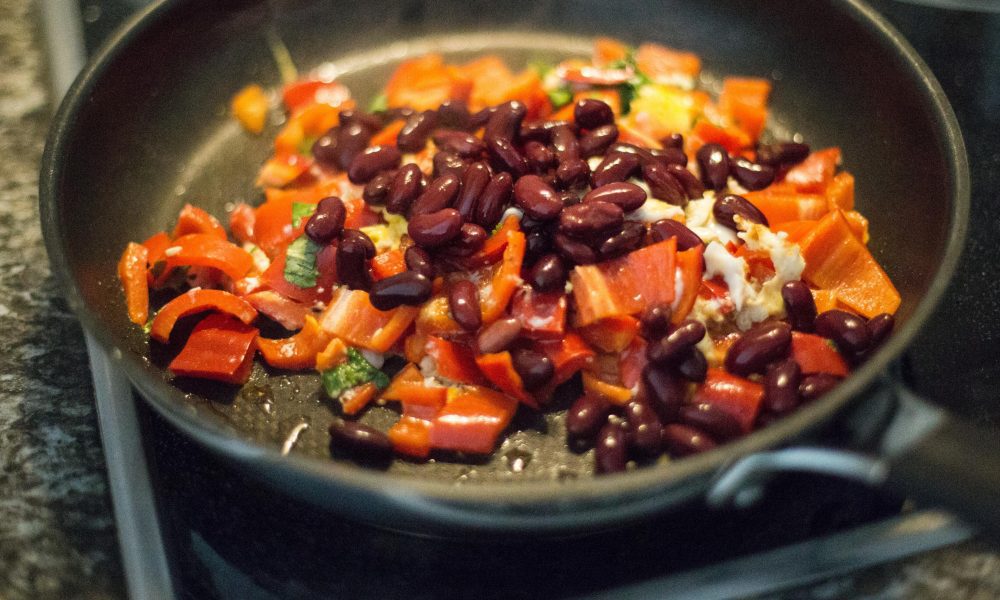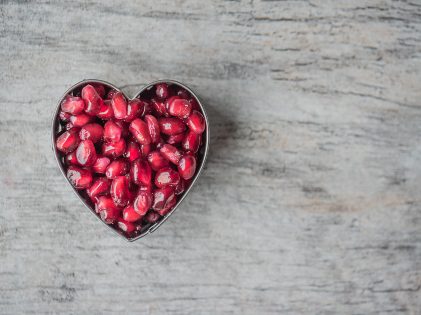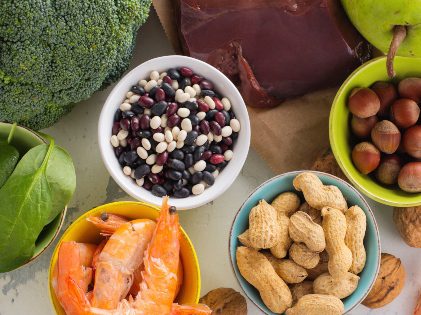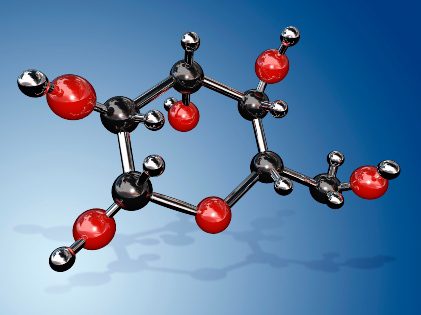
Add Beans in Your Meals to Cure and Prevent Many Dieseases

Beans are seeds from flowering plants belonging to the Fabaceae family and fall under the category of legumes. Most of the beans grow in capsules or pods that develop from flowers. Other beans are peas, lentils, and peanuts. They are rich in amino acids, which are essential for the body’s healing process and maintenance. In other words, amino acids are the protein-building blocks consumed by the body to heal or make new tissues such as blood, muscles, bones, skin, and hair.
There are 20 amino acids, and out of the nine essential for the human body, soybean is the only bean containing all nine important amino acids. Other beans are also rich in protein and contain a number of all amino acids, but not all. Beans are an extremely rich source of fiber, and proteins, which provide several benefits to the human body, some of the benefits are as below:
Folate
Folate is one of the important nutrients present in beans in beans. It is essential to maintain overall health as it helps to develop healthy red cells, and during pregnancy, it prevents neural tube defects in the fetus. One cup serving of unpeeled edamame beans provides 482 micrograms of folate.
Antioxidants
Beans contain a sufficient amount of polyphenols, which are a type of antioxidant. Antioxidants fight against free radicals, which are harmful chemicals produced in the human body during metabolism and other processes. If free radicals are not catered to through ample amounts of antioxidants in the diet, they can damage the cells, resulting in various diseases. Thus, beans, as a vibrant source of antioxidants, can protect the body from various diseases.
Healthy Heart
 People who include a sufficient portion of beans in their diet are less likely to develop heart diseases. According to a 2013 meta-analysis, there is an indirect relation between bean consumption and cardiovascular diseases. Other research has also proved that beans help control and reduce cholesterol, which is often a major reason behind heart attacks.
People who include a sufficient portion of beans in their diet are less likely to develop heart diseases. According to a 2013 meta-analysis, there is an indirect relation between bean consumption and cardiovascular diseases. Other research has also proved that beans help control and reduce cholesterol, which is often a major reason behind heart attacks.
Eighty-eight grams or a half cup of black beans contains 14 grams of fiber, which can fulfill half of the fiber requirements of an adult.
Helps Control Appetite
As beans are rich in fiber and starches, they make a person feel full and satisfied for a longer period. If beans are part of your long-term dietary strategy, they can prevent a person from overeating, thus helping in weight reduction and maintenance.
Prevents Cancer
 As beans contain antioxidants and anti-inflammatory properties, this helps prevent the development of cancer in the human body. Research suggests that black beans, the richest in antioxidants, are most efficient in fighting against intestinal cancer.
As beans contain antioxidants and anti-inflammatory properties, this helps prevent the development of cancer in the human body. Research suggests that black beans, the richest in antioxidants, are most efficient in fighting against intestinal cancer.
They slow the development of colorectal cancer as it prevents cancer cells from multiplying.
Improves Gut Health
Beans, especially black beans, prevent the body from several gut-related diseases as it improves intestinal barrier function and increases the growth of beneficial bacteria. Further, these beneficial bacteria support the immune system and help shed unwanted body weight.
Stabilizes Blood Glucose Level
 Beans have been proven in many studies that they help stabilize blood glucose levels and prevent diabetes because they are rich in fiber. Doctors highly emphasize beans intake for patients prone to developing diabetes or suffering from type 2 diabetes because beans reduce sugar levels in the blood and reduce blood pressure. It is advised for type 2 diabetic patients to add one cup of legumes to their daily diet.
Beans have been proven in many studies that they help stabilize blood glucose levels and prevent diabetes because they are rich in fiber. Doctors highly emphasize beans intake for patients prone to developing diabetes or suffering from type 2 diabetes because beans reduce sugar levels in the blood and reduce blood pressure. It is advised for type 2 diabetic patients to add one cup of legumes to their daily diet.
Prevents Fatty Liver
Obese people often suffer fatty liver problems. When fats start accumulating around the liver, it results in liver malfunction or failure. The only solutions to cure this disease are reducing weight, controlling blood sugar levels, and reducing bad cholesterol. One efficient way to achieve all these required actions is to replace higher fat animal proteins with beans.
Beans are a rich source of protein, fiber, antioxidants, and folate, which are extremely important for proper human body function. Consuming the recommended portion of beans in your meal is an easy and affordable way to cure and prevent numerous diseases.
However, every individual is different from the other. This means that their dietary requirements are different too. So, make sure you consult your nutritionist to build a customized dietary plan before jumping onboard the bean diet bandwagon. We hope you found this article interesting and informative. Don’t forget to share your thoughts in the comments section!
More in Nutrition & Weight Loss
-
`
Is Swimming in Cold Water Good for You?
Swimming is a beloved activity that provides numerous physical and mental health benefits. Swimming can be a fantastic workout, whether you’re...
November 15, 2023 -
`
Unlocking the True Benefits of Detox Water
Detox water has taken the health and wellness world by storm, promising a wide range of benefits that go beyond ordinary...
November 7, 2023 -
`
How Tom Brady Shed 10 lbs After Retirement
One of the NFL’s most celebrated athletes, Tom Brady, has always been a topic of discussion. Brady never fails to surprise,...
November 1, 2023 -
`
AI’s Hidden Toll on Our Brains
Artificial Intelligence (AI) has permeated almost every facet of our lives, from virtual assistants and recommendation algorithms to autonomous vehicles and...
October 24, 2023 -
`
What to Drink During a Workout
When it comes to getting the most out of your workout, proper hydration is key. What you drink during exercise can...
October 17, 2023 -
`
Wearable Technology Applications in Healthcare
The world of healthcare is evolving at an unprecedented pace, and wearable technology is one of the driving forces behind this...
October 10, 2023 -
`
Initiating and Integrating Exercise in Daily Life
Incorporating exercise into our daily lives is essential for maintaining optimal health and well-being. However, initiating a fitness routine and seamlessly...
October 10, 2023 -
`
Jason Momoa’s Workout Routine for Iconic Aquaman Look
We all remember the moment: The big screen lights up, waves crash, and out emerges Jason Momoa as Aquaman, with his...
October 8, 2023 -
`
Crying: The Benefits on Mental Health
In a world that often champions stoicism and emotional restraint, shedding tears is sometimes dismissed as a sign of vulnerability. However,...
September 26, 2023















You must be logged in to post a comment Login